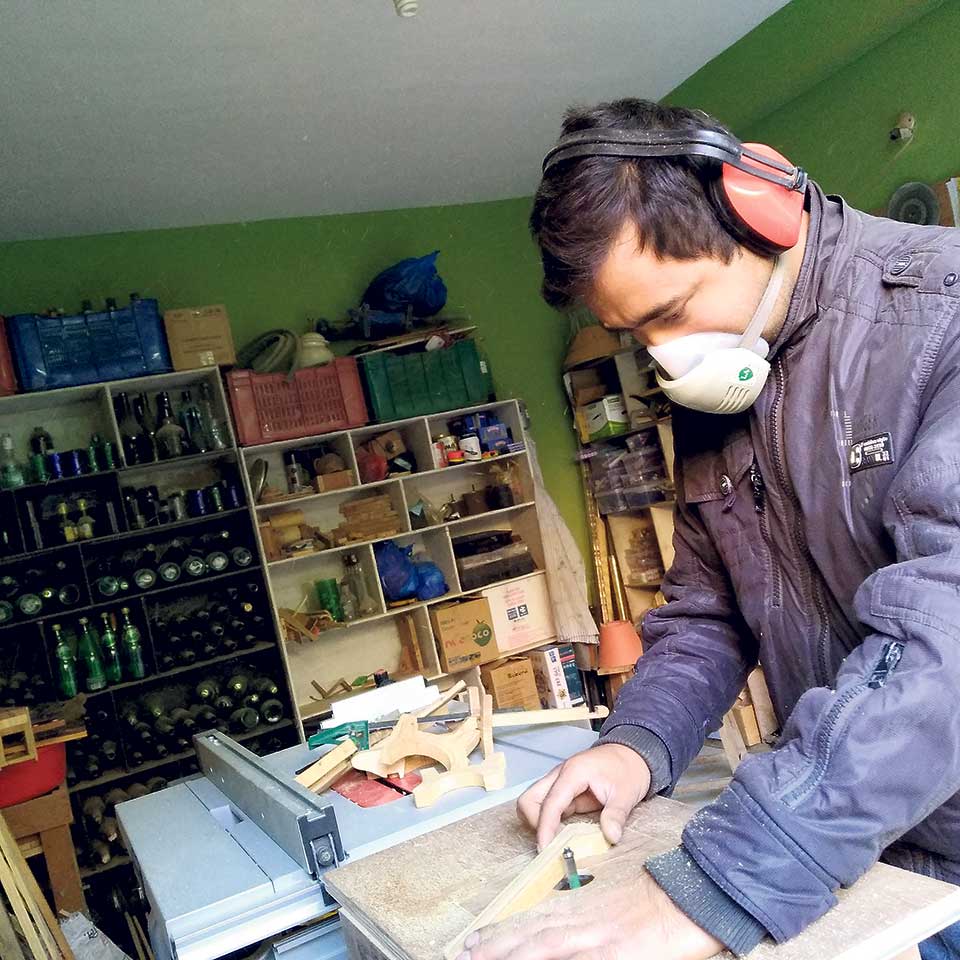TikTok is not causing social disharmony but rather exposing the decadence in Nepali society, highlighting unprecedented levels of bad governance and corruption that Nepali people have never witnessed before.
Despite extensive discourse on banning TikTok, the United States, widely acknowledged as a beacon of democracy, has opted against implementing a nationwide ban. It remains unwavering in its commitment to democratic values and the principle of free speech. In contrast, the Nepal Government has chosen to portray the disruption of social harmony as the grounds for banning TikTok in a hush-hush manner, without engaging in public discourse on the matter.
In the face of widespread public protest, Nepal has formally banned TikTok on November 13, 2023, with authorities justifying the move by expressing apprehensions about the app's content being "detrimental to social harmony." This restrictive measure comes on the heels of Nepal's recent enforcement of a regulation compelling social media firms to establish liaison offices within the nation.
In defiance of the ban, numerous individuals—especially those from the younger demographic—have vehemently opposed it, decrying the prohibition as a foreboding harbinger of totalitarianism.
TikTok has been permanently and temporarily banned in many countries. In mid-2020, India took assertive steps to ban the platform alongside 59 other Chinese-owned apps citing allegations that these apps clandestinely transmitted user data to servers situated outside India as the basis for their decision. Other countries, including the United Kingdom, Australia, Canada, the European Union's executive arm, France, Belgium, Denmark and the Parliament of New Zealand, have also enforced bans on the utilization of the app on government devices.
The art of creative reuse : Upcycling waste and upscaling the e...

The United States was one of the first countries to take an early stance on considering a ban for TikTok. Shortly after President Donald Trump assumed office in 2017, his administration declared the possibility of banning TikTok, citing national security concerns. Despite repeatedly talking about the ban, the Trump administration did not enact it. However, in May of this year, Governor Greg Gianforte of Montana introduced a groundbreaking bill to prohibit TikTok within the state, marking the first instance of a U.S. state implementing such a statewide ban. This ban is set to come into effect on January 1, 2024. Following this development, over two dozen states in the United States have also imposed bans on TikTok for government-issued devices, citing national security threats. TikTok’s CEO Shou Zi Chew even testified before the House Energy and Commerce Committee on March 23, 2023 defending the platform.
Many experts and academics have expressed skepticism on TikTok ban, asserting that the national security claims made by the U.S. government lack credibility. Among them, Anupam Chander, a law professor at Georgetown University, underscores the absence of concrete evidence suggesting TikTok's sharing of American users' data with the Chinese government for potential political motives. Chander asserts, "None of the claims made by U.S. lawmakers are evidence-based." He highlights that the concerns voiced by many lawmakers center around the app's location tracking services, fueled by apprehensions of potential espionage. However, Chander emphasizes that tracking services are a standard feature in social media apps. He argues that if the sophisticated Chinese intelligence sector were to target specific state employees in the United States, TikTok might not be the primary and effective avenue. He suggests that the U.S. government is simply engaging in the "politicization of national security.”
Despite extensive discourse on banning TikTok, the United States, widely acknowledged as a beacon of democracy, has opted against implementing a nationwide ban. It remains unwavering in its commitment to democratic values and the principle of free speech. In contrast, the Nepal Government has chosen to portray the disruption of social harmony as the grounds for banning TikTok in a hush-hush manner, without engaging in public discourse on the matter. Rekha Sharma, the country's minister for communications and information technology, claimed that TikTok was undermining "our social harmony, family structure, and family relations." Since the ban was implemented in an ad-hoc manner, many prominent young political leaders have voiced their concerns in response to the decision.
Gagan Thapa, the general secretary of the Nepali Congress party; Sagun Sundar Lawoti, a central committee member and head of the international relations department of the Rastriya Prajatantra Party (National Democratic Party); former Minister Biraj Bahadur Bista, a central committee member of the Rastirya Shakti Party; and former Deputy Prime Minister Rabi Lamichane, the Chairman of Rastriya Swantantra Party, have voiced their opposition to the government's ban on the social media app. Their shared concern centers around the belief that the ban is fueled more by political motives than a genuine commitment to safeguarding users or addressing social disharmony. They argue that TikTok is not causing social disharmony but rather exposing the decadence in Nepali society, highlighting unprecedented levels of bad governance and corruption that Nepali people have never witnessed before.
In truth, the source of social disharmony in the country lies in the incompetence of political parties. Rampant corruption, soaring inflation, a dearth of employment opportunities, and an unfavorable environment for small and medium enterprises have collectively cultivated an adverse economic landscape in Nepal. This scenario has compelled hundreds of thousands to seek opportunities abroad. This widespread labor migration serves as a significant catalyst for social discord. An article titled "Mental Health Problems in Nepalese Migrant Workers and their Families," authored by Pashupati Mahat, Kevan Thorley, Karuna Kunwar, and Smriti Ghirime and published in the Journal of BP Koirala Institute of Health Science, sheds light on the myriad challenges faced by migrant workers, encompassing social isolation, heightened worry, low mood, fearfulness, and sleep disturbances.
According to the findings of the study published in the journal, the wives and mothers of migrant workers grapple with anxiety, depression, suicidal thoughts, and attempts. Contributing factors to psychosocial and mental health issues encompass domestic violence, the death of migrant workers, health concerns affecting both migrant workers and their families, and communication challenges during overseas employment. Rather than addressing the incompetence, shortcomings, and governance failures of the government and political parties, they are deflecting blame onto TikTok. Many argue that the primary motive behind this ban is to prevent the general population from using TikTok as a platform to highlight the socioeconomic difficulties within Nepali society. People are convinced that these challenges are a direct outcome of the shortcomings and failures of both the government and political parties and the government is hellbent on destroying the fabric of Nepali society that is intricately woven with the threads of diverse cultures, shared values, and the interplay of individual perspectives.
Furthermore, a notable portion of the population, especially the youth, views the introduction of the social media directive by the Nepali government as a concerning stride toward Communist totalitarianism. This directive empowers the government to oversee online 'truth,' granting authority to compel social media platforms to censor content marked with ambiguous and broadly defined terms. The government's justification for this measure rests on the increasing number of complaints from individuals, citing the absence of company representatives in Nepal hindering the resolution of user concerns and the removal of objectionable content from social media platforms.
Similarly, in a display of solidarity with the youth, young leaders such as Thapa, Lawoti, Bista, and Lamichane have expressed profound dissatisfaction with the directive, deeming it an unacceptable infringement on free speech. They characterize the directive as Orwellian, signaling a potential crackdown on dissenting voices across social media platforms. This not only poses a significant threat to Nepali democracy but also stifles the creative pursuits of many individuals and impedes small and medium enterprises from earning a livelihood.
According to Foundr magazine, TikTok creators boasting more than 100,000 followers generally earn monthly sums ranging from $200 to $1,000 through TikTok’s Creator Fund. For those amassing over a million followers, monthly earnings can vary from $1,000 to $5,000. The remarkably creative influences and content creators can make anywhere from $100,000 to $250,000 for a single post when collaborating with major brands. The numbers might vary for Nepal, but a significant portion of Nepali youth uses TikTok to earn money through their creativity. At a time when many Nepali individuals are leaving the country in large numbers in search of foreign employment due to the dire state of the economy, it is unfortunate that the government has attempted to stifle the creative economy. This decision reflects a lack of understanding, particularly guided by outdated communist ideologies fit for the 18th century.
According to the United Nations Conference on Trade and Development (UNCTAD), the 'creative economy' is a dynamic concept rooted in the interaction between human creativity, ideas, intellectual property, knowledge, and technology. Essentially, it encompasses knowledge-based economic activities that form the foundation of 'creative industries.'The present valuation of the creative economy stands at almost a trillion USD. This noteworthy opportunity should not be disregarded by a government solely focused on maintaining power at any cost.
The Nepali populace is highly dissatisfied with the TikTok ban and the enforcement of a stringent social media directive. They perceive the government's actions as the onset of an Orwellian era of online censorship. Several writ petitions, totaling almost a dozen, have been filed at the Supreme Court (SC) challenging the government's decision to ban TikTok. These petitions claim that the ban infringes upon citizens' freedom of opinion and expression, urging its annulment. Critics argue that the government, in the process of formulating a regulation, hastily imposed the TikTok ban without a legal basis.
It is imperative for Nepal to explore every possible avenue to overturn this decision, safeguarding democracy, preserving free speech, and steering the country towards a creative economy.







































